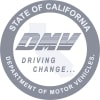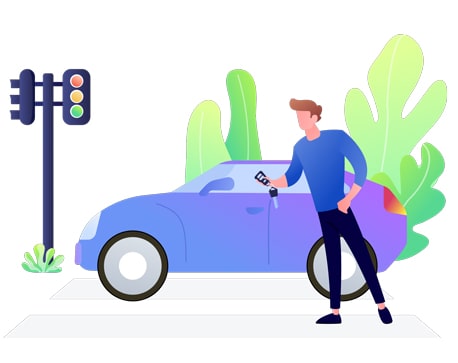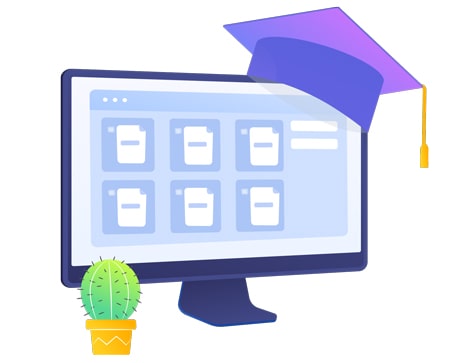Karnes County Adult Driver Education FAQ
What is the Impact Texas Driver Program?
The Impact Texas Driver (ITD) program is a free, state-mandated online course designed to educate drivers about the risks and dangers of distracted driving. It is required for all adults 18 years and older who are applying for a Texas driver’s license and have completed a Texas adult drivers ed course.
For adults, the specific program is called the Impact Texas Adult Drivers (ITAD) program. This one-hour video course highlights the consequences of distracted driving and offers strategies for safer driving. The ITAD program must be completed within 90 days of taking the Texas DPS driving test. Failing to complete the program within this timeframe will require you to retake it before scheduling your test.
To sign up, you will need the certificate of completion (ADE-1317) from your Texas adult drivers ed course. The ITAD course is free and can be accessed via the official Texas DPS website.
If you take drivers ed, do you have to take the driver’s test?
Yes, even if you complete a Texas adult drivers ed course, you are still required to pass the Texas DPS behind the wheel test to obtain your Texas driver’s license. However, the course offers significant benefits.
For adults aged 18-24, completing the course includes the written knowledge test, so you won’t need to take it separately at the DPS office. This saves you time and simplifies the process. If you’re 25 or older, taking the course is optional, but it helps you prepare for both the written and road tests, increasing your confidence and chances of passing.
While you can’t skip the road test, the preparation provided by a drivers ed course often leads to a smoother and more successful experience.
Can I take drivers ed online?
Yes, you can take a Texas adult drivers ed course online. Online courses are state-approved and offer the flexibility to learn at your own pace from the comfort of your home.
Our online course is designed to cover all required topics, including Texas traffic laws, road safety, and defensive driving strategies. Once you complete the six-hour program, you’ll receive an ADE-1317 certificate via email. This certificate is a necessary step for applying for your Texas driver’s license at the DPS.
With a mobile-friendly platform, you can study from your computer, tablet, or phone, making online courses a convenient choice for busy adults in Karnes County and across Texas.
Do you have to do drivers ed at 18?
Yes, in Texas, adults aged 18 to 24 must complete a state-approved six-hour Texas adult drivers ed course before applying for a driver’s license. This requirement ensures that young adults have a solid understanding of road rules, traffic laws, and safe driving practices.
The course also includes the written knowledge test, which means you won’t need to take it separately at the DPS. Completing this step prepares you for the licensing process and helps ensure you’re confident and ready for the Texas DPS driving test. Adults 25 and older are not required to complete drivers ed but are encouraged to do so for a smoother experience.
Do you have to take drivers ed if you're 18?
If you are between 18 and 24 years old, taking a Texas adult drivers ed course is mandatory. This course helps you learn the essentials of Texas road laws, defensive driving, and safe driving practices.
For individuals 25 and older, taking drivers ed is optional but highly recommended. Choosing to complete the course can exempt you from the written knowledge test and provide valuable preparation for the driving test. Regardless of your age, drivers ed offers a foundation of knowledge that supports safer and more confident driving.
If I fail parallel parking, do I fail the whole test?
No, failing the parallel parking portion of the Texas DPS driving test doesn’t automatically result in a failed test. The examiner evaluates your overall driving skills, including your ability to follow traffic laws, control the vehicle, and make safe decisions.
Parallel parking is one of several skills tested during the road test, but mistakes in this area can be offset by strong performance in other aspects. However, multiple errors or critical safety violations could lead to a failing score. To increase your confidence, consider practicing with a licensed adult or taking professional driving lessons focused on parking techniques.
How long do drivers permits last?
A Texas restricted license, commonly referred to as a learner’s permit for adults, is valid for one year. If you’re unable to take the Texas DPS driving test within this period, you can renew the permit by reapplying and paying the applicable fees.
While there is no mandatory holding period for adults 18 and older, having a restricted license allows you to legally practice driving with a licensed adult. For new drivers, using this time to gain experience and confidence on the road is highly recommended before attempting the Texas DPS behind the wheel test.
How long do I need to have my permit before I get my license?
For adults 18 and older in Texas, there is no minimum waiting period between obtaining a restricted license and taking the Texas DPS behind the wheel test. Once you feel confident in your driving skills, you can schedule your road test.
Even though no waiting period is required, practicing with a licensed driver is crucial for new drivers to build experience and reduce the risk of mistakes during the driving test. Practicing key skills such as merging, parking, and defensive driving will better prepare you for success.
What is the permit test?
The permit test, officially called the Texas DPS written test, evaluates your knowledge of Texas road laws, traffic signs, and safe driving practices. If you are between 18 and 24 years old and complete a Texas adult drivers ed course, you are exempt from taking this test separately because it is included in the course.
For individuals 25 and older who choose not to take drivers ed, passing the permit test is required before obtaining a restricted license. Preparing with the Texas driver handbook and a DPS practice test is essential for success.
Is Karnes County the only area where you offer drivers ed?
No, we don’t just serve Karnes County! While we proudly support residents in Karnes City and across Karnes County, our Texas adult drivers education course is available throughout the state. We cater to nearby areas and beyond, including Maverick County, Williamson County, Bee County, Duval County, Hidalgo County, Trinity County, Blanco County, and Collin County.
In addition, we serve residents in cities like Eagle Pass, Georgetown, Beeville, Edinburg, and McKinney. No matter where you live in Texas, our online course allows you to complete your Texas adult drivers education at your own pace, meeting all state requirements for a Texas driver's license.
Our goal is to make obtaining your Texas adult driver's license as convenient as possible, whether you’re in Karnes City or anywhere else in Texas.
What do I need to do to get my license?
To obtain your Texas driver’s license as an adult, follow these steps:
- Complete Drivers Ed: Adults 18-24 must complete a Texas adult drivers ed course. For those 25 and older, the course is optional but recommended.
- Complete ITAD: Finish the Impact Texas Adult Drivers program within 90 days of your driving test.
- Schedule Your Test: Make an appointment with the DPS for your road test.
- Prepare Documents: Bring your ADE-1317 certificate, proof of identity, residency, and any other required paperwork.
- Pass the Tests: Pass the Texas DPS behind the wheel test.
- Pay Fees: Pay the license fee at the DPS office.
Do you need a license to drive?
Yes, driving without a valid Texas driver’s license is illegal and can result in fines and penalties. First-time drivers should apply for a restricted license (learners permit) to practice driving legally. A restricted license allows supervised driving with a licensed adult, helping new drivers gain experience before taking the Texas DPS behind the wheel test.
Driving legally ensures your safety and compliance with Texas law, reducing the risk of fines or other legal consequences.












